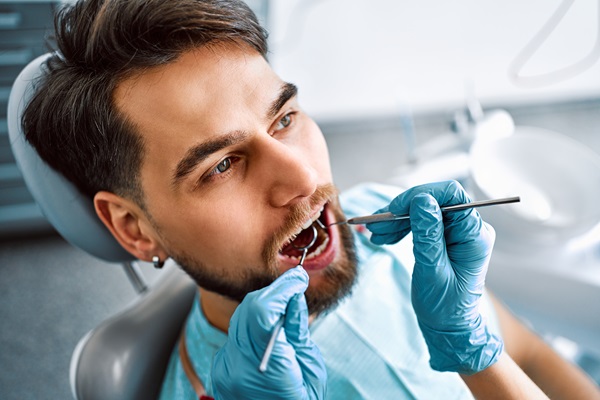Visiting the dentist can be an anxiety-inducing event for many people. The biggest reason for this is that general dentistry appointments are often associated with painful procedures and a perceived loss of control as you lay back and let the dentist and dental assistant perform their duties. It might also be possible that you are self-conscious of your teeth, which can lead to feelings of apprehension. However, arriving prepared for your appointment can help calm your nerves and make your dental appointment go more smoothly.
Preparing for your general dentistry visit
If you are someone who struggles with anxiety when it comes to dental procedures, you do not have to be a victim of your fears. There are several steps you can take to alleviate your concerns and pave the way to a healthy and productive relationship with your dental provider. Here are some ways to prepare for your visit to a general dentist. Some might require planning ahead of time but will result in a more pleasant dental experience.
Choose a dentist who you trust
Before you make your first appointment with a dentist, make sure that you choose a dentist who you are comfortable with. Being able to trust your dentist and the decisions they make will go a long way towards easing your nerves before and during the appointment.
Some ways to help find a dentist you are comfortable with include looking at online reviews, talking to friends in your local area, and going to the office to meet the dentist and their staff if you can do so. Open communication and the ability to put your mind at ease are two factors that are important to establishing a trustworthy relationship with your dentist.
Provide the office with your dental history
Providing the dental office with your dental history ahead of time will save you time during your appointment, leading you to feel less rushed when you are in the waiting area at the dental office. Discussing this information ahead of time also prevents you from having to answer questions about your dental history while at the office, when you might be feeling more nervous and are more apt to forget important details. If you had a previous dentist, contact that office to have your dental records sent to the new dental provider.
Brush and floss before your appointment
Especially important if you are self-conscious about your oral hygiene, brushing and flossing your teeth before your appointment can make the dentist's and dental assistant's jobs easier and, in turn, reduce your nerves. When you arrive with your teeth already cleaned as well as you can clean them, the dentist can get right to removing any plaque buildup that cannot be easily eliminated by brushing and flossing.
Discuss your fears with your dentist
It might be helpful to discuss any fears and anxieties that you have about dental work before your general dentistry visit. This way, the dentist can be prepared to explain any procedures that you are feeling anxious about during your visit. They may also be able to alter the atmosphere when you visit by doing things such as dimming the lights or allowing you to wear earbuds while your teeth are being cleaned. Rest assured, your dentist has seen many examples of dental anxiety and likely has an arsenal of suggestions to help address your concerns.
Prepare a list of questions
Your dental team, including the dentist, assistants, and hygienists, have undergone professional training and can offer valuable advice regarding caring for teeth. Make the most of your time in the dental chair by asking questions about your oral health. You will feel more in control if you have a list of questions that you have prepared in advance. Here are some common questions to get you started.
- What is the current state of my dental health?
- How can I whiten my teeth?
- What should I do to prevent gum disease?
- What type of toothpaste, toothbrush, and mouthwash should I use?
- What are some signs of trouble I should be looking for?
- Do you have tips for proper brushing and flossing techniques?
Conclusion
Visiting your dentist twice a year is an important component of your oral health routine. Hopefully, some of these tips will reduce anxiety and help you feel more prepared before and during your visits to the dentist. Remember you are not limited to your scheduled visits; contact your general dentist if you experience any problems or have any questions or concerns about your oral health.
Request an appointment here: https://hendersonfamilydentistry.com or call Henderson Family Dentistry at (903) 657-3139 for an appointment in our Henderson office.
Check out what others are saying about our dental services on Yelp: General Dentist in Henderson, TX.
[recent-blogs count=4 layout="horizontal" category="general-dentist-cat,find-a-dentist-cat,dental-office-cat,dental-practice-cat,dental-center-cat,general-dentistry-services-cat,dental-checkup-cat,dental-cleaning-and-examinations-cat,routine-dental-care-cat,routine-dental-procedures-cat,preventative-dental-care-cat"]
Comentarios recientes